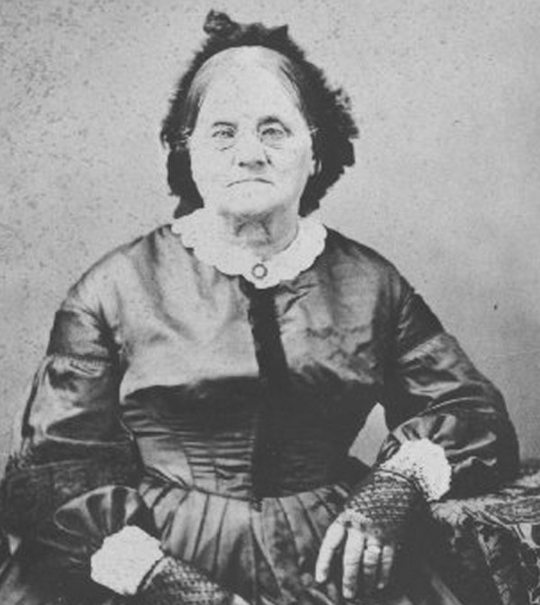12 Apr On This Day in UB History: April 12 (Lydia Sexton)

Lydia Sexton was born April 12, 1799. As a young woman, the daughter of a Baptist minister, she felt called to preach, but didn’t think Scripture permitted it. She even held her tongue in public gatherings. Twice her church offered to grant her a quarterly conference license, and twice she refused. She didn’t think it was proper for a woman to preach.
However, the sense of calling persisted. For ten years she wrestled with it. Lydia finally concluded that she was neglecting a call which Scripture did, indeed, permit. With the consent of her church leadership, she began preaching on occasion, and in 1851, her church licensed her. Lydia preached frequently. She told of one occasion when she prayed for one convert, and ended up seeing 14 people at the altar.
Lydia finally, in 1859, sought an annual conference license, but Bishop David Edwards nixed it. He cited a General Conference resolution passed two years before which forbid women to be licensed to preach. According to Lydia Sexton’s autobiography, he gave a dominos explanation–licensing could lead to ordination, which opened the door to being a bishop, and General Conference felt that “the teachings of the Bible forbid women ruling in the church of God–but to be in subjection.”
However, there was wiggle room. Bishop Edwards wasn’t personally opposed to women preaching–only to licensing them. He suggested that a letter of recommendation wouldn’t violate Scripture or the UB rules. So the conference unanimously adopted a letter of recommendation which said, “We, the members of the Upper Wabash Annual Conference of the Church of the United Brethren in Christ, do hereby recommend her to the churches as a useful helper in the work of Christ.”
And thus, Lydia Sexton became a trailblazer. She lived long enough to see the denomination pass a rule, in 1889, which forbid discriminating against women in granting ministerial credentials.
Lydia enjoyed a long and fruitful ministry. One minister wrote, after hearing her speak, “She is a warm-hearted speaker and a great revivalist. Great has been the fruit of her labor. She has taken hundreds of souls into the church.” She passed away in 1894 at age 96.
Here are two quotes from Lydia’s autobiography:
“I know with what doubt many will receive these statements as to the call to the ministry; and their skepticism is based upon what they construe as the teachings of the Bible. But I learned that ever since God has had a people, he has occasionally had a place where women could render effectual service.”
“I never preached at a place without having the satisfaction to learn that they desired me to return. I mention this only as a matter of encouragement to some of my sisters who feel that they have a call to the ministry. Do your whole duty, and look to God for help.”

No Comments